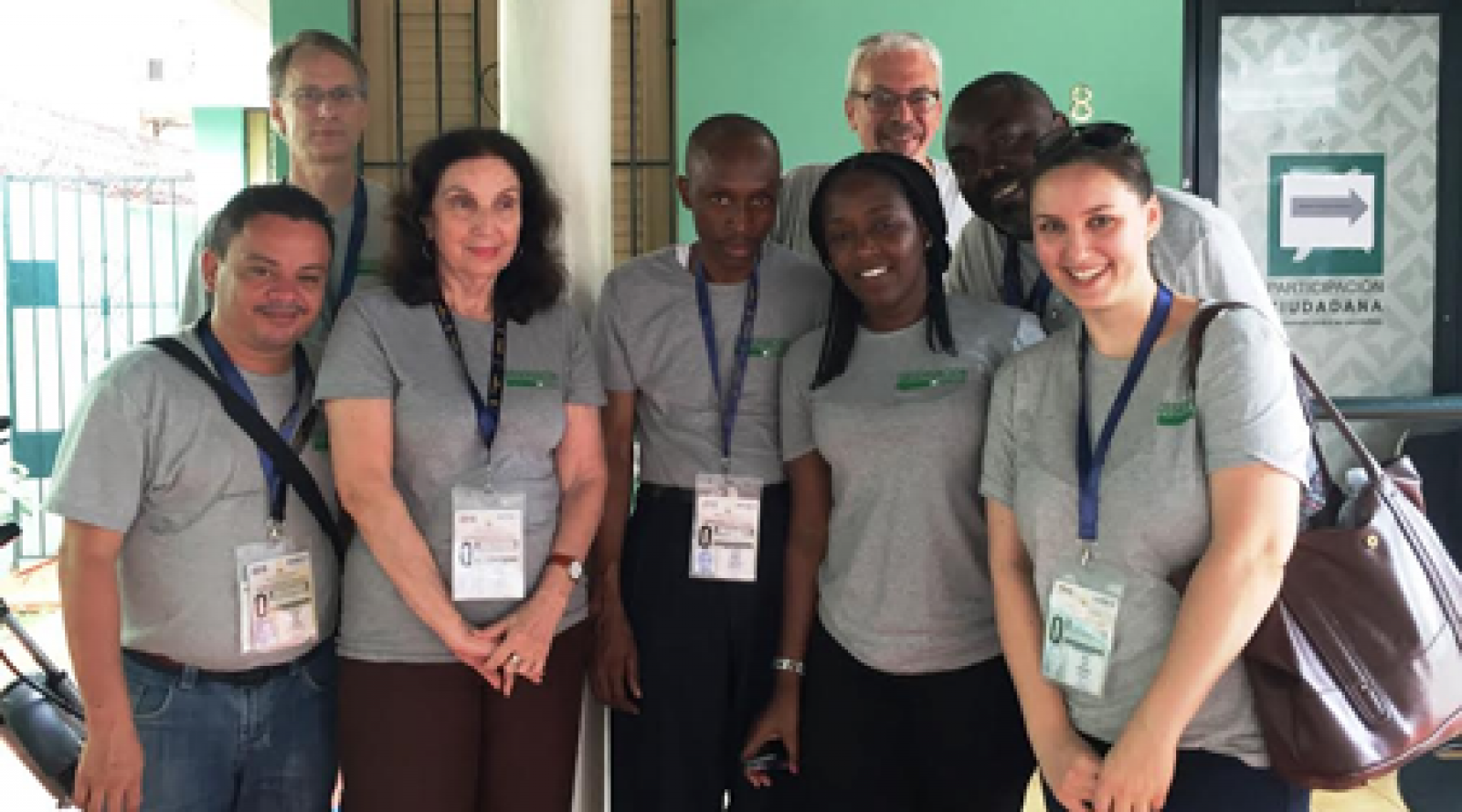
SHARE
June 1 marked the beginning of Lesbian, Gay, Bisexual, Transgender and Intersex (LGBTI) Pride month, celebrated around the world to promote equality rights for gender and sexual diversity. That same day Honduran LGBTI community leader, rising political figure, and friend to many at NDI, René Martínez, was murdered. A likely victim of a hate crime, Reny, as he was popularly known, was considering running for Congress next year with the governing National Party (Partido Nacional). Reny was an enthusiastic democratic leader who had just returned to Honduras from the Dominican Republic, where NDI had facilitated his election observation with Dominican groups.
Reny was well known and liked throughout his community. He lived and worked in Chamelecon in the municipality of San Pedro Sula -- one of the most dangerous and gang ridden neighborhoods in Honduras. “Reny embodied a new generation of political leaders who worked to improve the quality of life for his entire community,” stated NDI director in Honduras, Deborah Ullmer, who attended his funeral along with the Deputy Chief of Mission of the U.S. Embassy in Tegucigalpa, other members of the NDI staff and representatives of the Honduran government and the National Party. Among his many hats, Reny served as the president of the Gay Community of San Pedro Sula for Integral Health (Comunidad Gay Sampedrana por la Salud Integral), president of his community council, conventional member of the National Party, an active member of the UNAIDS-supported Access Committee for Comprehensive Care of Persons living with HIV in the Northern Coast prevention and volunteer at a USAID-supported youth outreach center.
The international community has shown its support to find justice for Reny. The U.S. Embassy in Honduras, the United Nations, the European Union Special Representative for Human Rights, the Spanish Government and others – including Congressman Eliot Engel (D-NY, 16th District) – issued statements condemning his murder and calling for an investigation. The European Union’s Ambassador in Honduras issued a statement about violence against the LGBTI community and the director of the National Violence Observatorty (Observatorio de la Violencia) of the National Autonomous University of Honduras (Universidad Autonoma de Honduras, UNAH) composed a note honoring Reny’s work toward gender inclusion. NDI and Colombian partner Caribe Afirmativo also released a statement on events against the LGBTI community in Honduras.
Initatives to support equality for LGBTI members are ongoing in Honduras. Last October, NDI, the Gay and Lesbian Victory Institute of the United States, and Caribe Afirmativo co-sponsored a conference that focused on bolstering LGBTI political engagement in Latin America and the Caribbean. The conference was supported by USAID and the National Endowment for Democracy. Reny was among more than 300 activists from across the region who attended the gathering, in which Special U.S. Envoy for the Human Rights of LGBTI Persons, Randy Berry, participated. Immediately following the conference, Reny and other politically active members formed a multi-partisan group to promote political inclusion and representation of LGBTI persons in Honduras. Days before his murder, Reny worked closely with NDI and Caribe Afirmativo to complete a study on LGBTI inclusion in major political parties in the country.

Juan Diego Zelaya (center), General Secretary of the National Party
Threats and violence against LGBTI activists in Honduras are unfortunately rampant. Earlier this year, on January 24, Paola Barraza, another transgender woman who served as representative of the Rainbow Association (Asociación LGTB Arcoiris de Honduras) and graduated from NDI’s Youth Leadership Academy in 2014, was killed in her home after receiving several prior threats and attacks. According to the Lesbian Response Network Cattrachas, 226 LGTBI persons have been killed in Honduras in the last seven years, and seven this year alone. The Police Unit for High Level Murders (Unidad de Muertes de Impacto), with assistance from the United States and Colombia, are investigating Reny’s case. Unfortunately, about 95 percent of killings go unsolved and most cases are never examined in Honduras, a country with one of the highest murder rates in the world.
NDI mourns Reny’s loss -- he is greatly missed. Taking him as an inspiration, NDI’s work will continue in support of these brave persons who gave their lives to defend human rights and promote the respect and dignity for sexual and gender diversity in Honduras, Central America and the world.
Published on June 21, 2016


